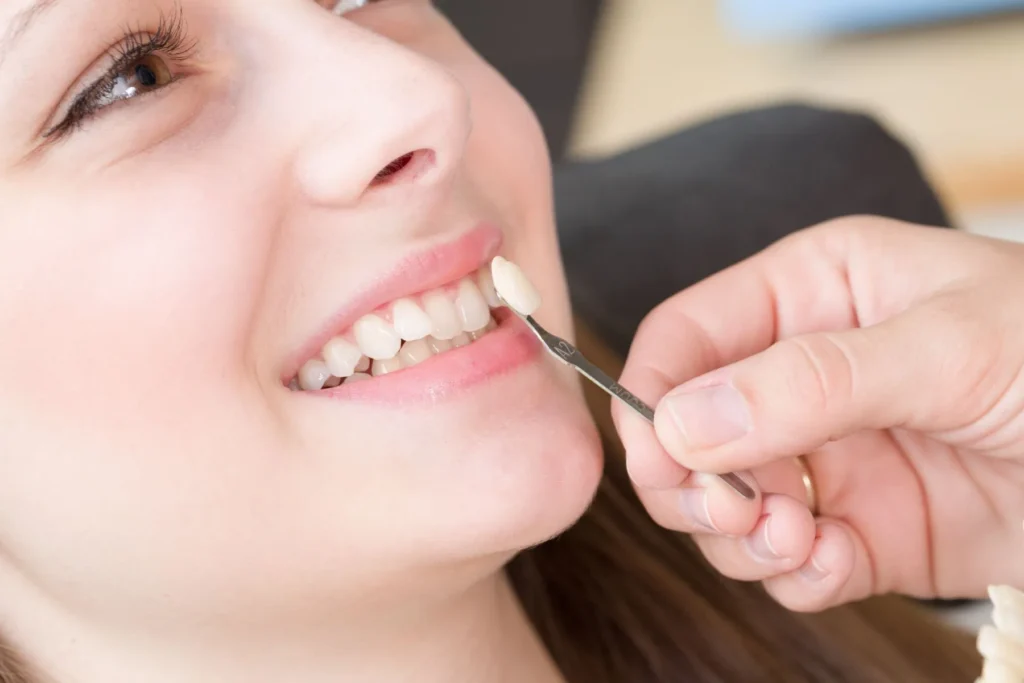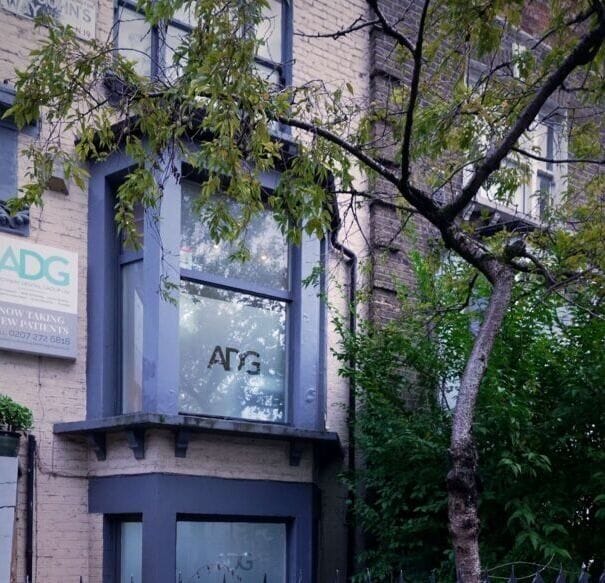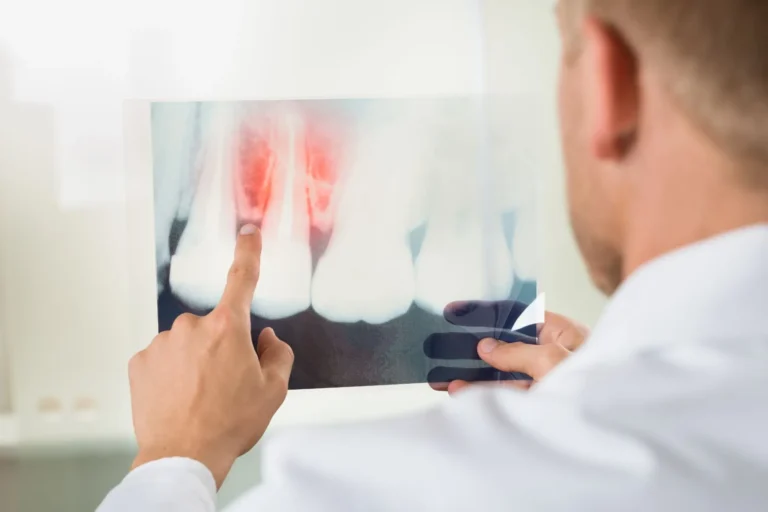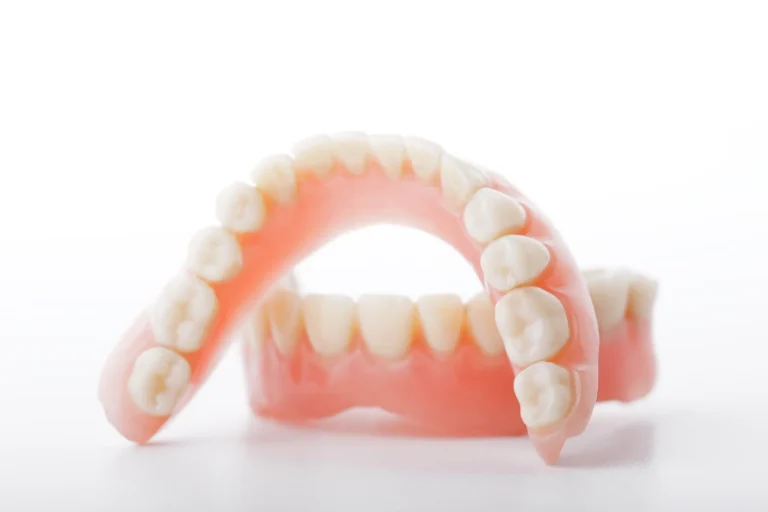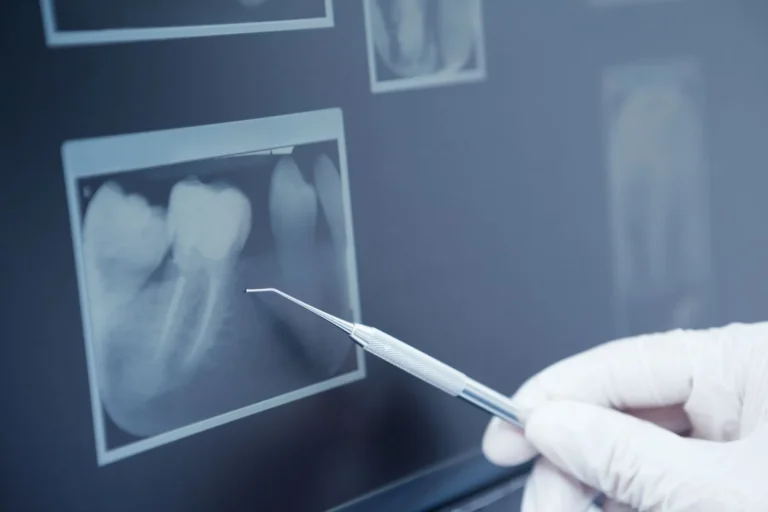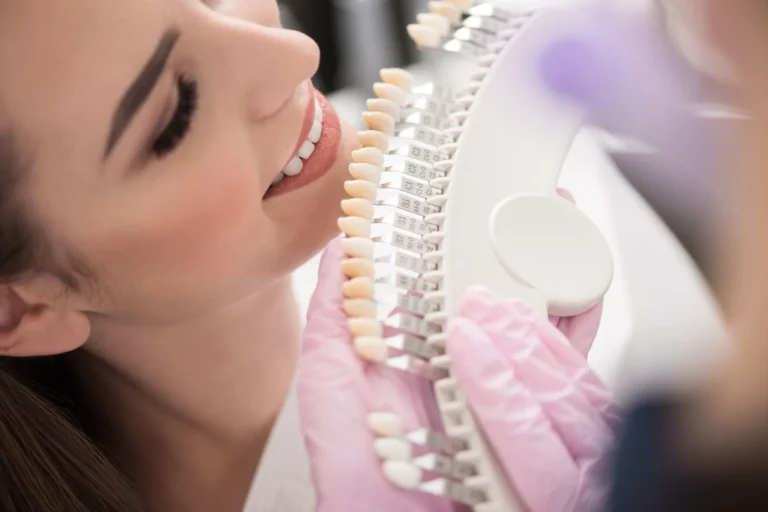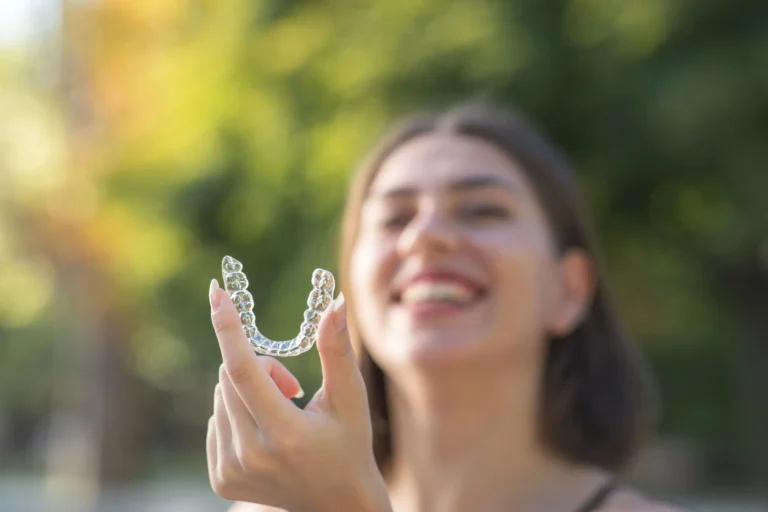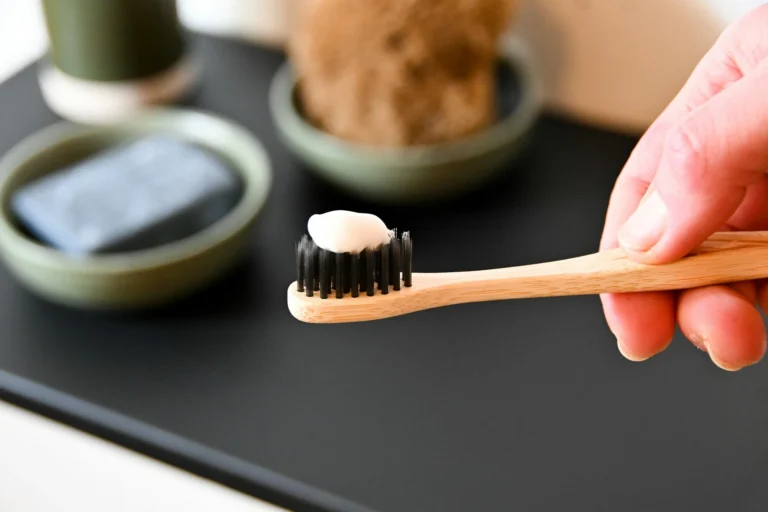What are veneers and how do they work?
How long do veneers last? But first, what are veneers? Dental veneers are ultra-thin, custom-crafted shells made from porcelain or composite resin, designed to cover the front surface of the teeth and enhance their appearance. They are a trusted and minimally invasive solution for patients looking to improve the colour, shape, alignment, or size of their teeth. Veneers are one of the most popular aesthetic dental treatments due to their ability to deliver dramatic yet natural-looking transformations.
Dental Veneers are often recommended to correct a wide range of cosmetic dental concerns, including:
- Discoloured or stained teeth that do not respond well to whitening treatments
- Chipped, cracked, or worn teeth that affect symmetry and confidence
- Slightly crooked or uneven teeth that need visual realignment without orthodontics
- Gaps between teeth (diastema) that interrupt the flow of your smile
- Short or naturally small teeth that don’t match your overall facial proportions
The process of placing veneers is both precise and conservative, meaning very little natural tooth structure is removed. Here’s how it typically works:
- Consultation and planning: The dentist discusses your goals, evaluates your smile, and designs a customised treatment plan.
- Tooth preparation: A minimal layer of enamel (if needed) is removed to ensure a perfect fit.
- Digital scanning: At Archway Dental Group, we use intraoral scanners to create accurate digital impressions — no messy moulds required.
- Smile design: With Digital Smile Design (DSD), we preview the final outcome digitally, so you can see what your smile will look like before treatment begins.
- Custom fabrication: Your veneers are crafted by skilled dental technicians to match your desired shade, shape, and texture.
- Bonding: The veneers are permanently bonded to your teeth with strong, long-lasting adhesive. Final adjustments are made for bite and comfort.
Porcelain veneers are known for their exceptional strength and lifelike translucency, making them almost indistinguishable from natural enamel. Composite veneers, while more affordable, can also deliver excellent aesthetic results — especially when applied by a skilled cosmetic dentist.
Choosing the right type of veneer depends on your goals, the condition of your natural teeth, and how long you want the result to last. At Archway Dental Group, we guide you through every option with a clear, patient-focused approach, helping you make the best decision for your smile.
Whether you’re preparing for a special event or simply want to boost your confidence, dental veneers offer a reliable and elegant solution for long-lasting aesthetic improvement.
👉 Learn more about our veneer treatments at Archway Dental Group
How long do veneers last on average?
How long do veneers last on average? This is one of the most frequently asked questions by patients considering a cosmetic dental enhancement. The answer depends on a combination of factors — but generally, porcelain veneers are known to last 10 to 15 years, often even longer with excellent care, while composite veneers tend to have a slightly shorter lifespan, typically around 5 to 7 years. However, these are not rigid timeframes: many patients maintain their dental veneers well beyond these averages when they follow a dedicated oral care routine and attend regular dental check-ups.
The true longevity of veneers is influenced by a range of clinical and behavioural factors, all of which contribute to how well the veneers withstand daily use over time. These include:
- The skill and technique of the clinician: High-quality, long-lasting veneers depend significantly on precise placement, preparation, and bonding techniques. At Archway Dental Group, we take pride in a meticulous approach using advanced digital technology, ensuring each veneer fits perfectly and functions comfortably.
- The patient’s oral hygiene routine: Regular brushing, flossing, and professional cleaning help prevent gum disease or decay at the edges of the veneer, which could otherwise compromise its integrity. Maintaining healthy gums also contributes to the long-term aesthetics of the smile.
- Bite alignment and jaw function: Patients with bite issues or habits like clenching and grinding (bruxism) may place more stress on their veneers, increasing the risk of chipping or early wear. In such cases, a night guard may be recommended to protect the veneers during sleep.
- Diet and lifestyle: Frequent consumption of hard or sticky foods can place additional strain on veneers. Likewise, habits like nail biting or chewing pens may cause unnecessary stress. While porcelain veneers are highly resistant to staining and durable, composite veneers can stain more easily and may require more frequent maintenance.
- Smoking and alcohol: Tobacco and certain types of alcohol can affect the bonding over time and may impact the colour or longevity of the restoration, especially with composite materials.
When cared for properly, veneers are not just a short-term cosmetic fix — they are a long-lasting investment in your smile. Patients often report that their veneers still look as good as new even after a decade or more, especially when placed in an environment of excellent oral health and regular monitoring.
At Archway Dental Group, we not only focus on delivering aesthetic excellence but also provide detailed aftercare plans to help you preserve your veneers for as long as possible. We believe that preventive care and early intervention are essential to protecting your results.
👉 Book your veneer consultation to explore long-lasting smile solutions
What can affect how long veneers last?
What can affect how long veneers last? This is a crucial question for patients who are considering veneers as a cosmetic treatment and want to ensure they get the most from their investment. While veneers are designed to be long-lasting and durable, their lifespan can vary considerably based on a number of factors — many of which are within the patient’s control. The combination of proper planning, lifestyle habits, and ongoing care plays a key role in determining how well veneers hold up over time.
Here are the main factors that can influence how long veneers last:
• Oral hygiene and daily care
Maintaining excellent oral hygiene is essential. Brushing twice a day with a soft-bristled toothbrush, flossing daily, and using non-abrasive toothpaste help protect the margins of the veneers and prevent gum inflammation or decay in the natural tooth underneath. Poor hygiene can lead to plaque buildup at the gumline, increasing the risk of veneer failure or the need for early replacement.
• Diet and eating habit
While veneers are made from durable materials like porcelain or composite resin, they’re not indestructible. Biting into hard items — such as ice cubes, hard sweets, or even fingernails — can cause micro-fractures or chips. Acidic and sugary foods or drinks can also erode the bonding over time, especially if oral hygiene is not consistent. Patients are advised to adopt a balanced diet and avoid unnecessary risks that could affect the veneer’s longevity.
• Bite alignment and functional stress
Your bite (occlusion) plays a significant role in determining how veneers perform over time. If your bite is misaligned or if you suffer from bruxism (teeth grinding), your dental veneers will be exposed to increased mechanical stress. This can lead to chipping, cracking, or premature wear. At Archway Dental Group, we assess bite dynamics as part of the veneer planning process, and we may recommend a custom night guard to protect your veneers if grinding is detected.
• Smoking and tobacco use
Smoking can stain composite veneers and may affect gum health, which in turn impacts how well veneers age over time. Additionally, tobacco use can interfere with the longevity of the bonding agent, especially when paired with inconsistent oral hygiene. For optimal results and healthier gums, reducing or quitting tobacco is strongly recommended.
• Professional maintenance and follow-ups
Just like natural teeth, dental veneers benefit from routine dental check-ups and hygiene appointments. During these visits, we check the integrity of the veneer, monitor gum health, and polish the surface (particularly for composite veneers, which may dull slightly over time). This proactive approach ensures any minor issues are addressed early — protecting both your smile and your long-term investment.
At Archway Dental Group, we take a comprehensive, preventive approach to veneer care. Before treatment, we conduct a detailed assessment of your oral health, bite, and lifestyle habits to minimise risks and create a customised care plan. After treatment, we continue to support you with guidance, monitoring, and professional maintenance designed to extend the life and beauty of your dental veneers.
👉 Schedule a smile assessment with our team
Are porcelain veneers more durable than composite veneers?
Yes. Porcelain veneers are generally more durable and stain-resistant than composite veneers. Here’s how they differ:
Porcelain Veneers
- Made from high-quality ceramic materials
- Resistant to staining from coffee, tea, or red wine
- Mimic natural tooth enamel beautifully
- Require more preparation but last longer
- Often preferred for more comprehensive smile makeovers
Composite Veneers
- Made from resin material applied directly to the tooth
- Less expensive initially
- May stain more easily
- Faster to apply, often completed in one visit
- Ideal for minor cosmetic improvements
If your goal is a long-lasting, natural-looking result with minimal upkeep, porcelain veneers are typically the better choice.
👉 Discover the difference between composite and porcelain veneers
What can affect how long dental veneers last?
What can affect how long veneers last? This is one of the most important questions to ask before committing to a cosmetic dental procedure. While veneers are crafted to be long-lasting, their true durability is not guaranteed by materials alone. A variety of individual and clinical factors play a crucial role in determining how long veneers last — and understanding these variables is the first step to preserving your new smile for many years.
At Archway Dental Group, we believe that patient education is as important as clinical excellence. That’s why we take time to explain everything that may impact the longevity of your dental veneers, ensuring you’re equipped to care for your investment from day one.
Here are the key factors that influence how long veneers last:
• Oral hygiene and daily care
Excellent oral hygiene is non-negotiable. Dental veneers themselves are resistant to decay, but the teeth underneath and the surrounding gums are not. Without consistent care, issues like gum disease, recession, or decay at the veneer margins can arise — all of which can shorten their lifespan. We advise:
- Brushing gently but thoroughly twice a day
- Using fluoride toothpaste and a soft-bristled brush
- Flossing daily to remove plaque between teeth
- Rinsing with mouthwash to support gum health
Neglecting any of these habits can lead to complications that compromise not only your dental veneers but your overall oral health.
• Diet and eating habits
What you eat matters. Veneers are made from strong materials like porcelain and composite resin, but they are not immune to damage. Patients should avoid:
- Biting into hard objects like nuts, bones, ice, or pens
- Using their teeth to open packaging
- Frequent consumption of acidic foods or fizzy drinks, which can weaken the bonding agents
- Sticky sweets that can dislodge composite materials over time
We also recommend rinsing your mouth with water after consuming staining substances such as coffee, tea, red wine, or dark berries — especially for patients with composite veneers, which are more prone to discolouration.
• Bite alignment and functional pressure
Your bite — also known as occlusion — plays a critical role in the longevity of veneers. If your bite places excessive pressure on one or more teeth, it can result in micro-fractures or dislodgement of the dental veneers. Patients with bruxism (teeth grinding) or jaw clenching are particularly at risk.
At Archway Dental Group, we:
- Evaluate your bite dynamics during the planning phase
- Adjust the final shape and thickness of the veneers accordingly
- Recommend custom night guards when needed to protect veneers during sleep
This preventive approach greatly reduces the risk of veneer damage and contributes to their long-term stability.
• Smoking and tobacco use
Smoking can reduce the longevity of dental veneers in several ways. Firstly, it leads to staining, particularly in composite veneers, which are more porous than porcelain. Secondly, it contributes to gum inflammation and recession, which can reveal the edges of the veneers or destabilise them. Lastly, it may impair healing if any part of the veneer procedure requires soft tissue recovery.
Although porcelain veneers resist discolouration more effectively, the surrounding gum tissue may darken or recede over time due to smoking — impacting the overall aesthetic result.
Reducing or quitting smoking not only improves the health of your mouth but also protects your dental veneers and enhances their appearance.
• Professional maintenance and routine follow-ups
Even the best-placed dental veneers require regular professional care. At Archway Dental Group, we recommend:
- Scheduling hygiene appointments every six months
- Having your veneers professionally polished to maintain lustre
- Attending regular check-ups for bite assessments and veneer inspections
- Discussing any signs of sensitivity, rough edges, or loosening immediately
Routine follow-ups allow us to catch and correct small issues before they escalate into problems that could shorten the lifespan of your dental veneers.
• The quality of clinical planning and execution
It’s also important to note that the initial preparation and bonding technique used by your dentist will directly impact the lifespan of your veneers. At Archway Dental Group, we use:
- Digital Smile Design (DSD) to plan the most aesthetic and functional outcome
- Intraoral scanners to eliminate guesswork and increase accuracy
- High-quality adhesives and materials for strong, long-lasting bonds
- A conservative approach that preserves as much natural tooth as possible
These protocols help ensure that the dental veneers are not only beautiful but also durable, secure, and biomechanically sound.
Ultimately, how long veneers last depends on the collaboration between patient and dentist. Our role is to deliver a result that meets the highest clinical standards, and your role is to maintain it through consistent care and healthy habits.
At Archway Dental Group, we’re committed to supporting you every step of the way — from consultation to aftercare — to ensure your dental veneers remain a source of pride and confidence for many years.
👉 Schedule a smile assessment with our team
When do veneers need to be replaced?
Even with excellent care, veneers will eventually need to be replaced. You might consider a replacement if:
- The veneer becomes chipped, cracked, or detached
- The underlying tooth experiences decay or structural changes
- There is noticeable discolouration that cannot be polished away
- The veneer no longer fits due to gum recession or shifting teeth
It’s important not to ignore early warning signs. Regular dental visits allow your dentist to monitor your veneers and identify any changes that require attention. Replacing dental veneers is a common and safe procedure that can restore your smile’s full beauty and function.
👉 Need a veneer check-up? Book a consultation today
Conclusion: How long do veneers last?
So, how long do veneers last? The answer depends on the type of veneer, your oral habits, and the care you receive — but with the right approach, dental veneers can provide a decade or more of confidence, beauty, and functional improvement.
At Archway Dental Group, we combine cutting-edge technology, artistic design, and clinical expertise to craft dental veneers that last. From your initial consultation to aftercare, our team is dedicated to helping you protect your investment in your smile.
📍 Archway Dental Group Ltd – 34 St John’s Way, Archway, London, N19 3RR
📞 020 7272 6818
📧 reception@archwaydentalgroup.co.uk
👉 Book your consultation today and take the first step toward a beautiful, lasting smile.

